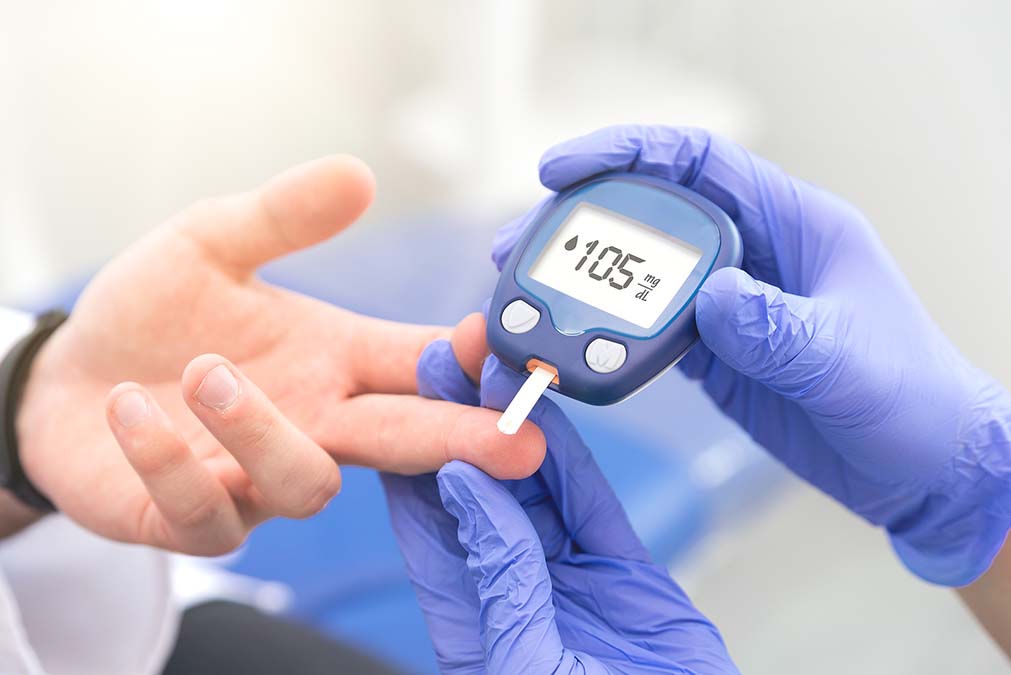 The frequency of Type-2 Diabetes is rising steeply.
The frequency of Type-2 Diabetes is rising steeply.
Whether you’ve been diagnosed with full-blown diabetes, pre-diabetes, or are healthy as can be, you need to pay attention to a new study that has been published in the Journal of the Endocrine Society.
That’s because they identified one marker that almost guarantees an onset of type-2 diabetes 10 years ahead of the actual affliction.
Japanese scientists were interested in the timing of the onset of diabetes and wanted to understand when an intervention against it should begin.
They examined medical data from 27,392 people who had regular information available; 4,781 of them were eventually diagnosed with pre-diabetes, while 1,061 had full-blown diabetes.
They found that, approximately 10 years prior to their official diagnoses, people that had a higher fasting glucose and body mass index also had lower insulin sensitivity.
Ten years before being diagnosed with diabetes, subjects had a fasting glucose score of 101.5 mg/dL, compared to 94.5 mg/dL among those who were never diagnosed.
Those eventually diagnosed with pre-diabetes had a score of 91.8 mg/dL, compared with 89.6 mg/dL in their healthy peers.
Eventual diabetics had a body mass index of 24.0 kg/m2 versus 22.7 kg/m2 among those who remained healthy. Eventual pre-diabetics had a score of 22.6 kg/m2, compared to 22.1 kg/m2 among their healthy counterparts.
On the single-point insulin sensitivity test, eventual diabetics scored 7.32 versus 8.34 among their peers, while pre-diabetics scored 8.44 versus 8.82 among their peers.
It seems that both diabetes and pre-diabetes actually begin 10 years or more prior to an official diagnosis.
This study is important, because if it is right, then doctors can identify people at risk of diabetes long before they actually develop it and can take action to prevent it well ahead of time.

 Overcoming IBD
Overcoming IBD Multiple Sclerosis
Multiple Sclerosis Banishing Bronchitis
Banishing Bronchitis Gum Disease Gone
Gum Disease Gone Overcoming Onychomycosis
Overcoming Onychomycosis Neuropathy No More
Neuropathy No More The Prostate Protocol
The Prostate Protocol Brain Booster
Brain Booster
 Ironbound
Ironbound
 Solution for Shingles
Solution for Shingles
 The Bone Density Solution
The Bone Density Solution
 The Ultimate Healing Protocol
The Ultimate Healing Protocol
 The Parkinson's Protocol
The Parkinson's Protocol
 The Chronic Kidney Disease Solution
The Chronic Kidney Disease Solution
 Overthrowing Anxiety
Overthrowing Anxiety The Fatty Liver Solution
The Fatty Liver Solution The Hypothyroidism Solution
The Hypothyroidism Solution
 The End of Gout
The End of Gout The Blood Pressure Program
The Blood Pressure Program
 The Oxigized Cholesterol Strategy
The Oxigized Cholesterol Strategy
 Stop Snoring And Sleep Apnea Program
Stop Snoring And Sleep Apnea Program
 The Arthritis Strategy
The Arthritis Strategy The Vertigo & Dizziness Program
The Vertigo & Dizziness Program The 3-Step Diabetes Strategy
The 3-Step Diabetes Strategy Hemorrhoids Healing Protocol
Hemorrhoids Healing Protocol The Erectile Dysfunction Master
The Erectile Dysfunction Master Weight Loss Breeze
Weight Loss Breeze The IBS Program
The IBS Program The Insomnia Program
The Insomnia Program The Migraine and Headache Program
The Migraine and Headache Program The Neck Pain Solution
The Neck Pain Solution The Menopause Solution
The Menopause Solution The Ejaculation Master
The Ejaculation Master The TMJ Solution
The TMJ Solution The Acid Reflux Solution
The Acid Reflux Solution The Fibromyalgia Solution
The Fibromyalgia Solution The Psoriasis Strategy
The Psoriasis Strategy